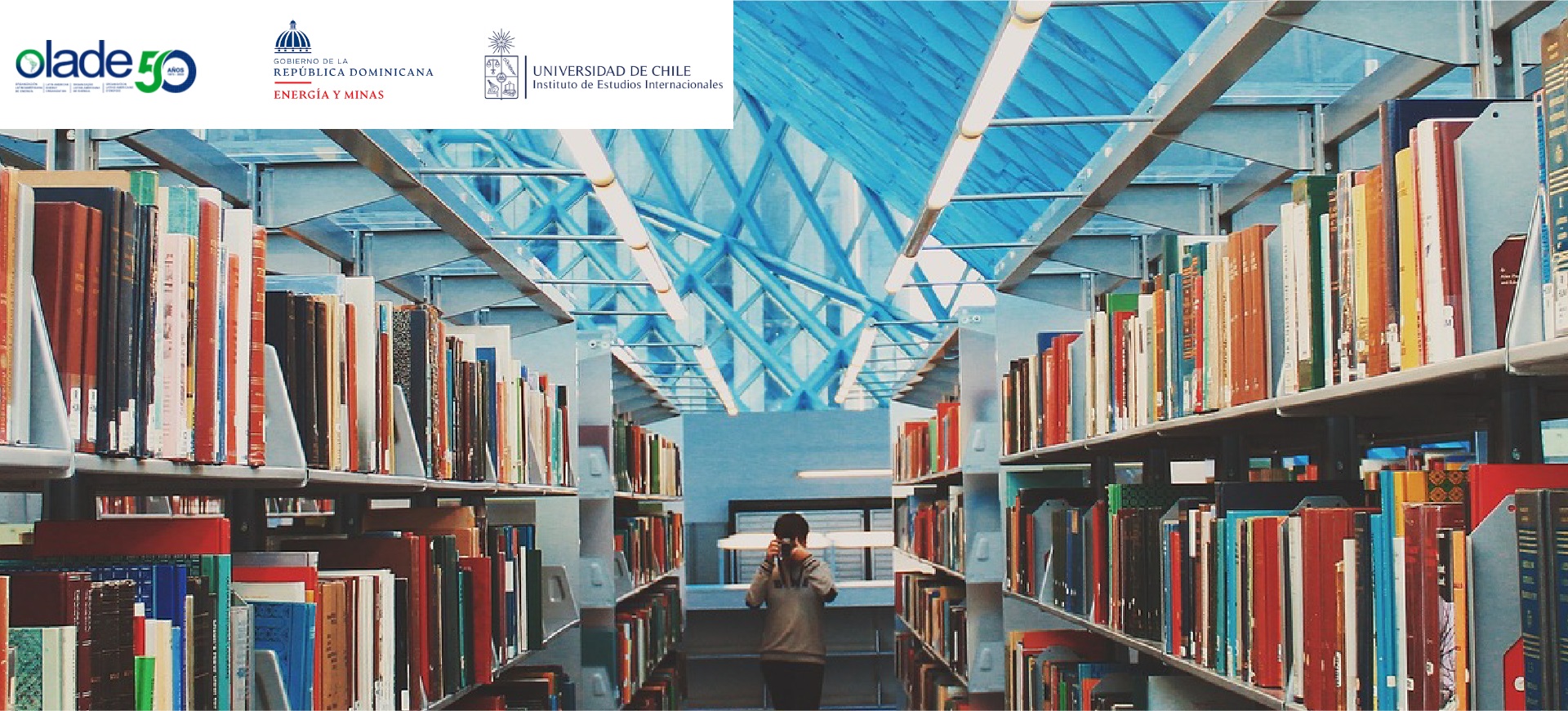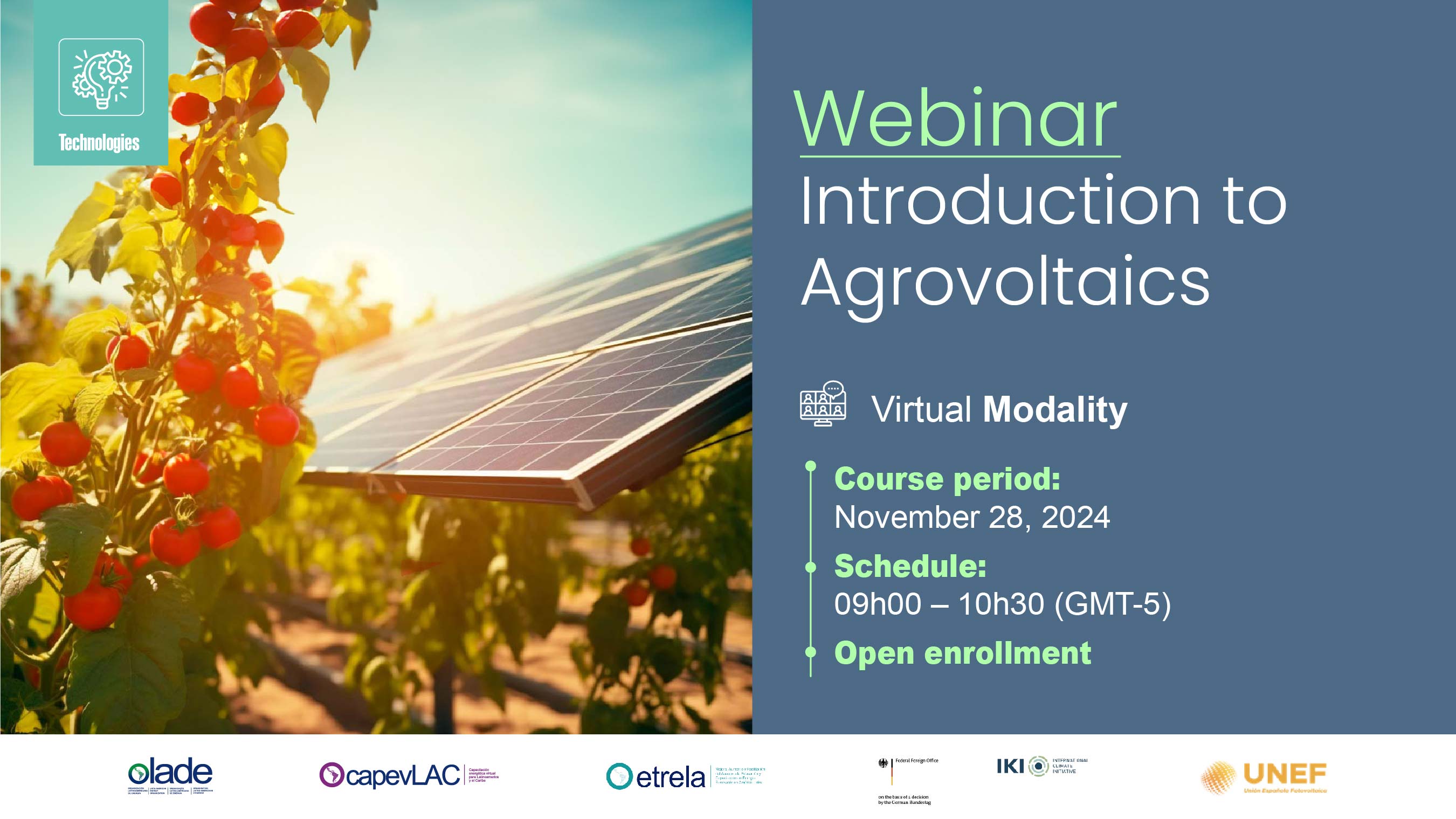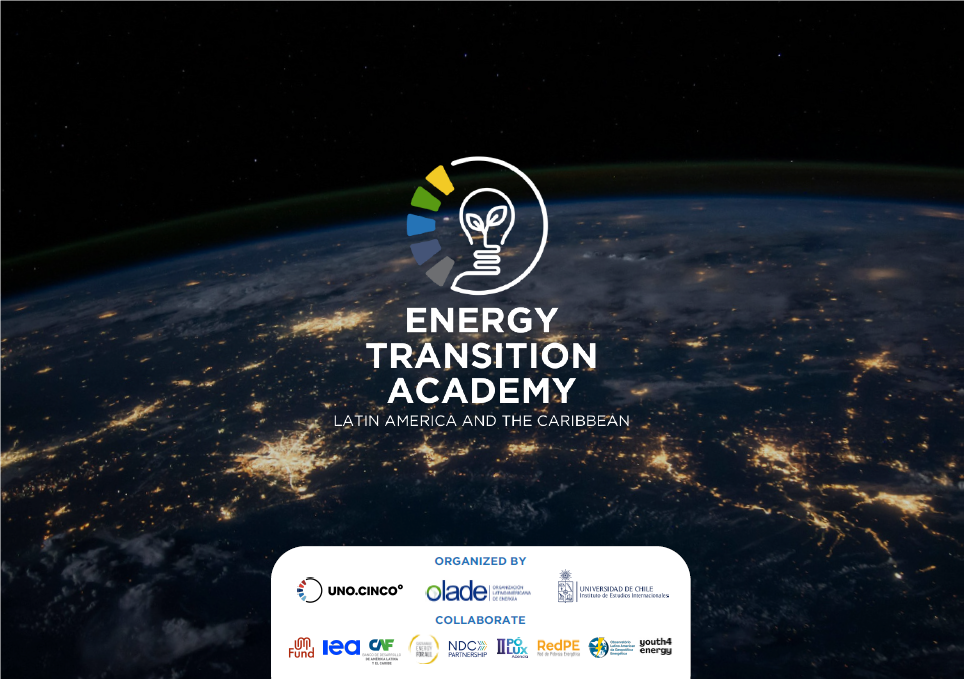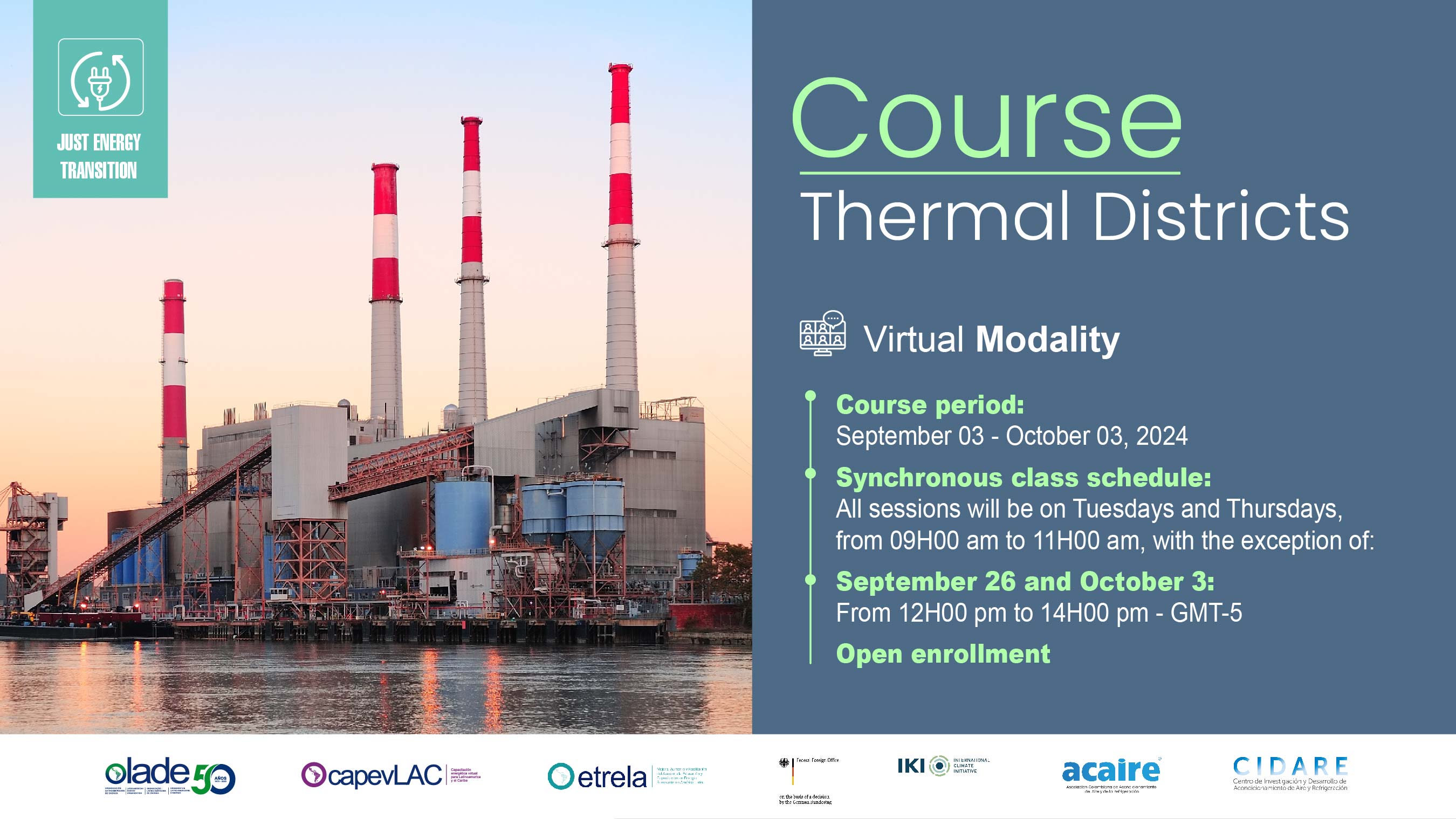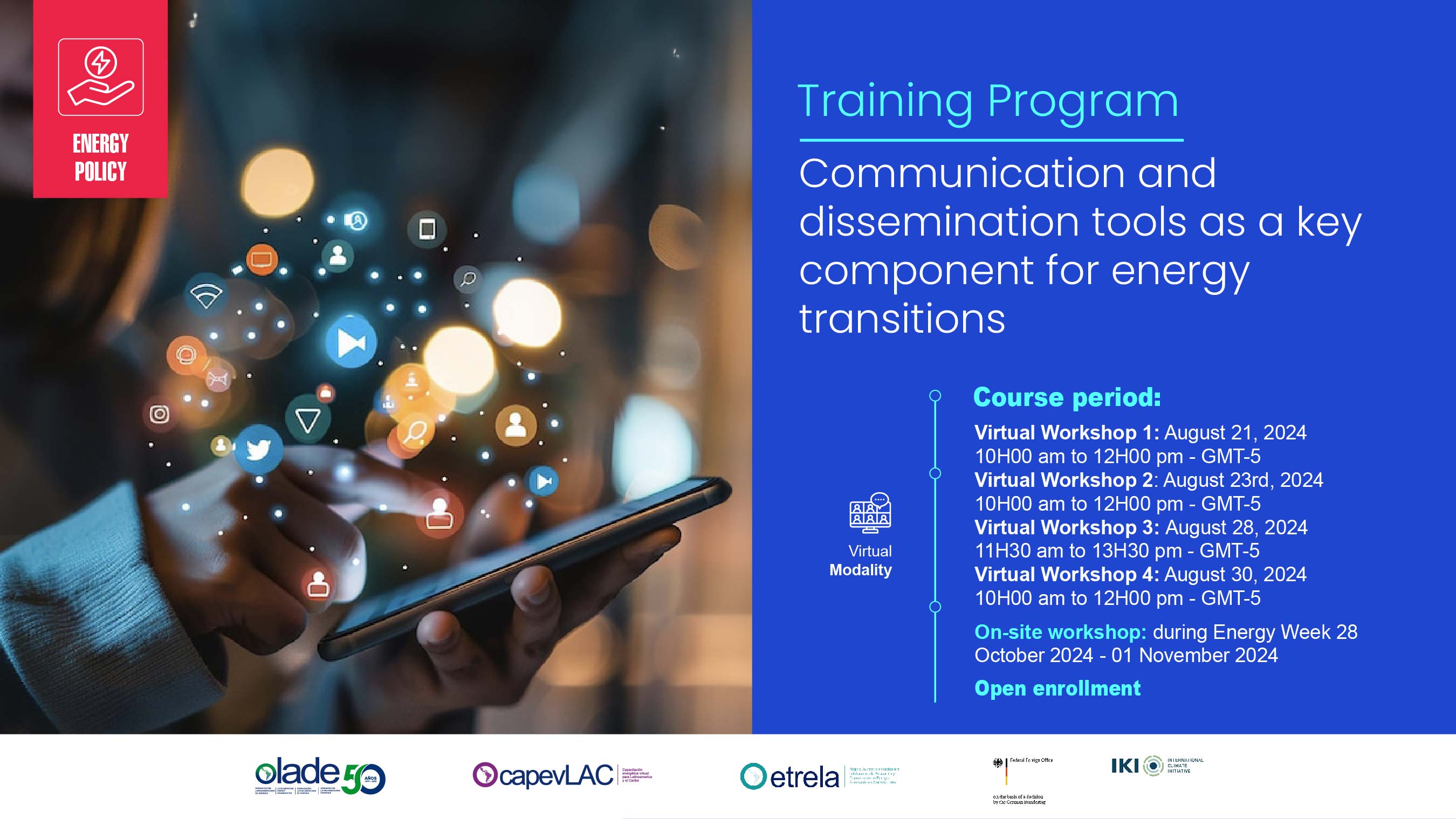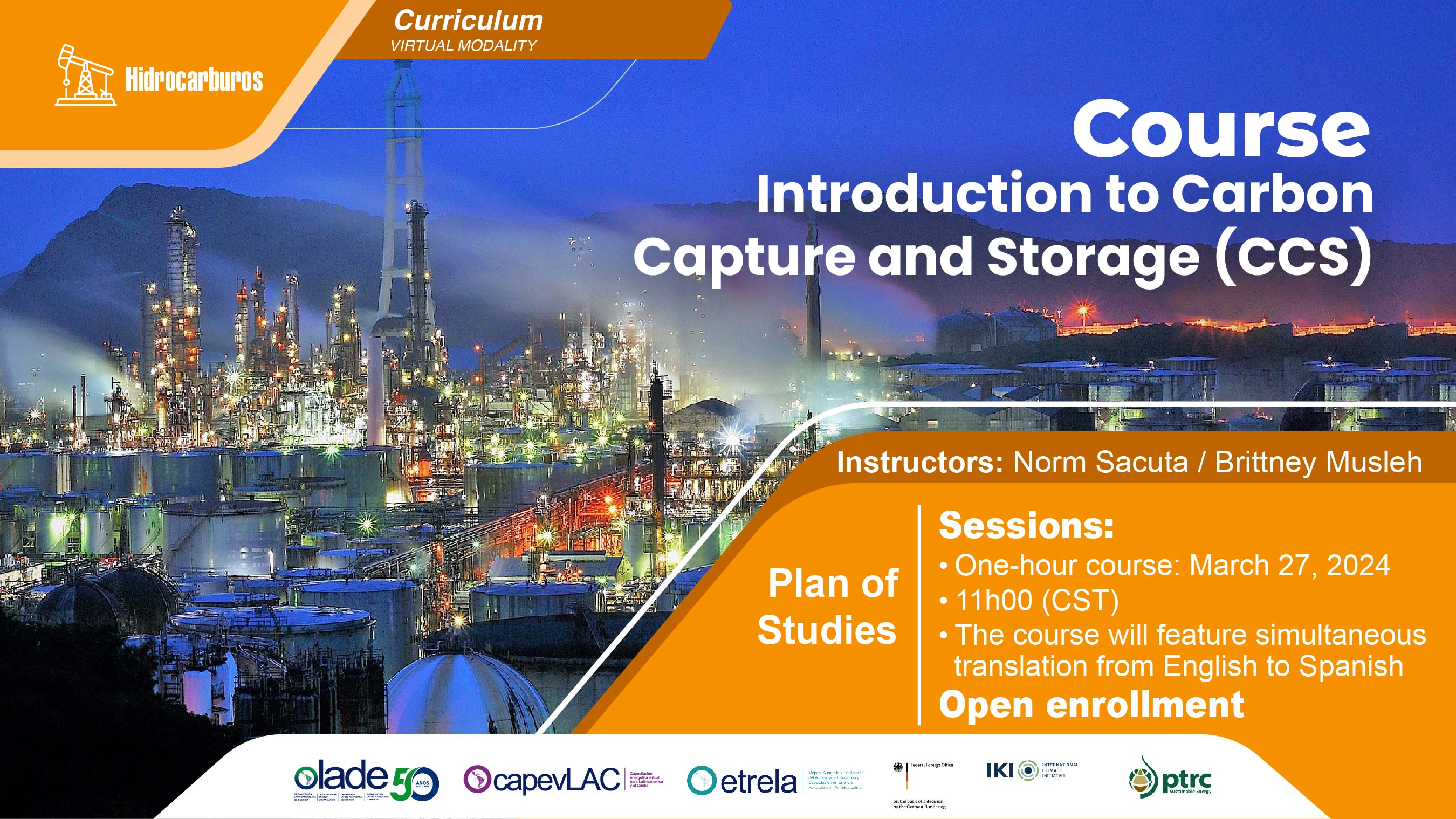Presentation
In the framework of a globalized and deeply interconnected society, international affairs and the energy agendas of Latin American and Caribbean countries are closely related, either through international cooperation or because of the borderless repercussions brought about by the intensification of climate change. The specialization of public sector professionals working in this sector is essential to successfully address the challenges of leading technical-political initiatives in the energy sector and thus have a positive impact on their respective countries.
Through a journey that begins by addressing key concepts and energy topics, passing through regional challenges and opportunities for international collaboration, until reaching the current geopolitical scenario, the diploma program “Regional Integration and Energy Diplomacy” seeks to provide tools and expertise in international relations and energy topics of various kinds.
Objectives
- To deepen the knowledge of international relations and their links with the energy sector.
- Acquire tools for analyzing the energy sector from a regional perspective.
- Develop an integrated vision between international relations and the regional and international energy sector.
Dates and schedules
August 6 to October 24, 2024 in the afternoon from 5:30 to 7:30 p.m. Quito – Ecuador, two sessions per week on Tuesdays and Thursdays. With the exception of the opening session, on August 6, 2024, which will be held between 11:00 a.m. and 12:00 p.m. Quito – Ecuador and session 06 of module 1, on August 22, 2024, which will be held between 10:00 a.m. and 12:00 p.m. Quito – Ecuador.
Target audience
Professionals from different backgrounds belonging to the Ministries of Foreign Affairs of Latin America and the Caribbean, together with officials from the Ministries of Energy in the international or related areas of the member countries of the Latin American Energy Organization (OLADE). Each country is expected to have two (2) participants, that is, a cohort of 54 students.
Languages
Spanish | English | Portuguese
Methodology
This diploma program includes synchronous lectures and autonomous work, seeking to promote dialogue between lecturers and students, through the problem-solving and application of acquired knowledge. Students will have to take a final evaluation, which consists of a multiple-choice questionnaire.
Modality and attendance
Remote, using the Latin American Energy Organization’s capevLAC training platform. To guarantee the effective delivery of knowledge, a minimum of 75% class attendance will be required and students must keep their cameras turned on and identify their name and surname clearly in each session. The course includes 23 two-hour lectures, that is, 46 direct teaching hours, 7 synchronous. Additionally, each session requires the preparation of pertinent readings, which is equivalent to 3 asynchronous hours per session, accumulating 69 hours of autonomous work. In total, 115 hours of training are considered.
Program
Session |
Topic |
Module 1: Energy topics |
|
| 1. 06/08/24 | Opening session |
| 2. 08/08/24 | LAC’s position in the global energy landscape |
| 3. 13/08/24 | Energy sector resources (renewable and non-renewable) |
| 4. 14/08/24 | Energy Access, Security and Poverty |
| 5. 20/08/24 | Climate change and energy |
| 6. 22/08/24 | International ecosystem: international energy organizations |
Module 2: Enabling conditions in the region for energy integration |
|
| 7. 27/08/24 | Regional integration and electricity market |
| 8. 29/08/24 | Regional energy markets: commercialization |
| 9. 03/09/24 | Types of financing: international banking |
| 10. 05/09/24 | Types of financing: green fund executors (GCF, GEF, etc.) |
Module 3: Energy sector challenges |
|
| 11. 10/09/24 | Infrastructure – electricity generation, distribution, transmission and storage |
| 12. 11/09/24 | Infrastructure: production, transportation and storage of fuels |
| 13. 12/09/24 | Gender and Human Rights |
| 14. 24/09/24 | Just energy transitions: public policy formulation LAC |
Module 4: International relations |
|
| 15. 26/09/24 | Introduction to international cooperation. Energy solidarity and technology transfers |
| 16. 01/10/24 | Bilateral, south-south and triangular international cooperation |
| 17. 03/10/24 | Autonomous work session |
| 18. 08/10/24 | International cooperation with a regional vision |
| 19. 10/10/24 | International cooperation – Students presentation |
| 20. 15/10/24 | International cooperation – Students presentation |
| 21. 17/10/24 | Public-private partnerships |
| 22. 22/10/24 | Energy geopolitics |
| 23. 24/10/24 | Seminar on Energy Diplomacy as a Tool for Integration in the Energy Transitions |
Course Features
- Lectures 24
- Quizzes 4
- Duration 24 weeks
- Skill level All levels
- Language English
- Students 11
- Certificate No
- Assessments Yes
Curriculum
- 5 Sections
- 24 Lessons
- 24 Weeks
- Session 01
- Module 1: Energy topics7
- 2.1S1 Opening session
- 2.2S2 LACs position in the global energy landscape
- 2.3S3 Energy sector resources (renewable and non-renewable)
- 2.4S4 Energy Access, Security and Poverty
- 2.5S5 Climate change and energy
- 2.6S6 International ecosystem: international energy organizations
- 2.7Quiz Module 1: Energy topics60 Minutes15 Questions
- Module 2: Enabling conditions in the region for energy integration5
- 3.1S7 Regional integration and electricity market
- 3.2S8 Regional energy markets: commercialization
- 3.3S9 Types of financing: international banking
- 3.4S10 Types of financing: green fund executors (GCF, GEF, etc.)
- 3.5Quiz Module 2: Enabling conditions in the region for energy integration60 Minutes20 Questions
- Module 3: Energy sector challenges5
- 4.1S11 Infrastructure; electricity generation, distribution, transmission and storage
- 4.2S12 Infrastructure: production, transportation and storage of fuels
- 4.3S13 Gender and Human Rights
- 4.4S14 Just energy transitions: public policy formulation LAC
- 4.5Quiz Module 3: Energy sector challenges30 Minutes6 Questions
- Module 4: International relations10
- 5.1S15 Introduction to international cooperation. Energy solidarity and technology transfers
- 5.2S16 Bilateral, south-south and triangular international cooperation
- 5.3S17 Autonomous work session
- 5.4S18 International cooperation with a regional vision
- 5.5S19 International cooperation – Students presentation
- 5.6S20 International cooperation – Students presentation
- 5.7S21 Public-private partnerships
- 5.8S22 Energy geopolitics
- 5.9S23 Seminar on Energy Diplomacy as a Tool for Integration in the Energy Transitions
- 5.10Quiz Module 4: International relations30 Minutes14 Questions

